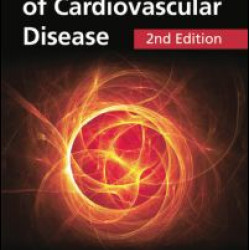Clinical Neuropsychology
Brand: Taylor & Francis
Model: Stock
This new editon sheds light on the ever-growing need for adequate neuropsychological assessment to a wider subset of individuals, crossing many cultural and minority barriers in the process...
₹3,597.82 ₹4,497.28
Brand: Taylor & Francis
Model: Stock
explores cutting-edge issues, such as considering the issue of medical marijuana from a neuropsychological perspective, understanding how living in various environments can affect brain structure and function, and conceptualizing the issue of drug use using emergent theories, such as behavioral econ..
₹3,230.62 ₹4,038.28
Brand: Taylor & Francis
Model: Stock
Fully updated, the second edition of Neuropsychology of Art offers a fascinating exploration of the brain regions and neuronal systems which support artistic creativity, talent and appreciation. It will be of great interest to students and researchers in neuropsychology, cognitive psychology, neuros..
₹3,083.74 ₹3,854.68
Brand: Taylor & Francis
Model: Stock
This second edition examines the relations of a host of behavioral and biomedical risk factors, in addition to subclinical and clinical CVDs, to brain and cognitive function...
₹4,038.46 ₹5,048.08
Brand: Taylor & Francis
Model: Stock
First Published in 1988. Routledge is an imprint of Taylor & Francis, an informa company...
₹6,094.78 ₹7,618.48
Brand: Taylor & Francis
Model: Stock
This Special Issue presents proceedings of the International Conference on Behavioral Health and Traumatic Brain Injury convened in October 2008 that brought together over 100 international scientists, health care professionals, policy makers, US Military personnel, and family members, addressing th..
₹2,569.66 ₹3,212.08
Brand: Taylor & Francis
Model: Stock
This book brings the reader up to date with the latest advances in understanding spatial neglect, insofar as this contributes to better clinical assessment, management and treatment...
₹5,654.14 ₹7,067.68
Brand: Taylor & Francis
Model: Stock
A useful reference for both those caring for people in vegetative conditions as well as for those investigating the physiological basis of human consciousness...
₹3,083.74 ₹3,854.68
Brand: Taylor & Francis
Model: Stock
The Notebook of a New Clinical Neuropsychologist vividly details the experience of starting work in clinical neuropsychology, exploring early-career learning and development through an intimate, case-based approach...
₹1,541.51 ₹1,926.88
Brand: Taylor & Francis
Model: Stock
The Notebook of a New Clinical Neuropsychologist vividly details the experience of starting work in clinical neuropsychology, exploring early-career learning and development through an intimate, case-based approach...
₹8,078.40 ₹10,098.00
Brand: Taylor & Francis
Model: Stock
This accessible book takes a psychological approach to understanding addiction. It considers key questions and myths surrounding addition such as ‘how do people get hooked?’ and ‘can you recover from addiction?’ Using examples from popular culture, the book also draws on psychological and neuroscien..
₹733.67 ₹917.08
Brand: Taylor & Francis
Model: Stock
This accessible book takes a psychological approach to understanding addiction. It considers key questions and myths surrounding addition such as ‘how do people get hooked?’ and ‘can you recover from addiction?’ Using examples from popular culture, the book also draws on psychological and neuroscien..
₹7,711.20 ₹9,639.00













